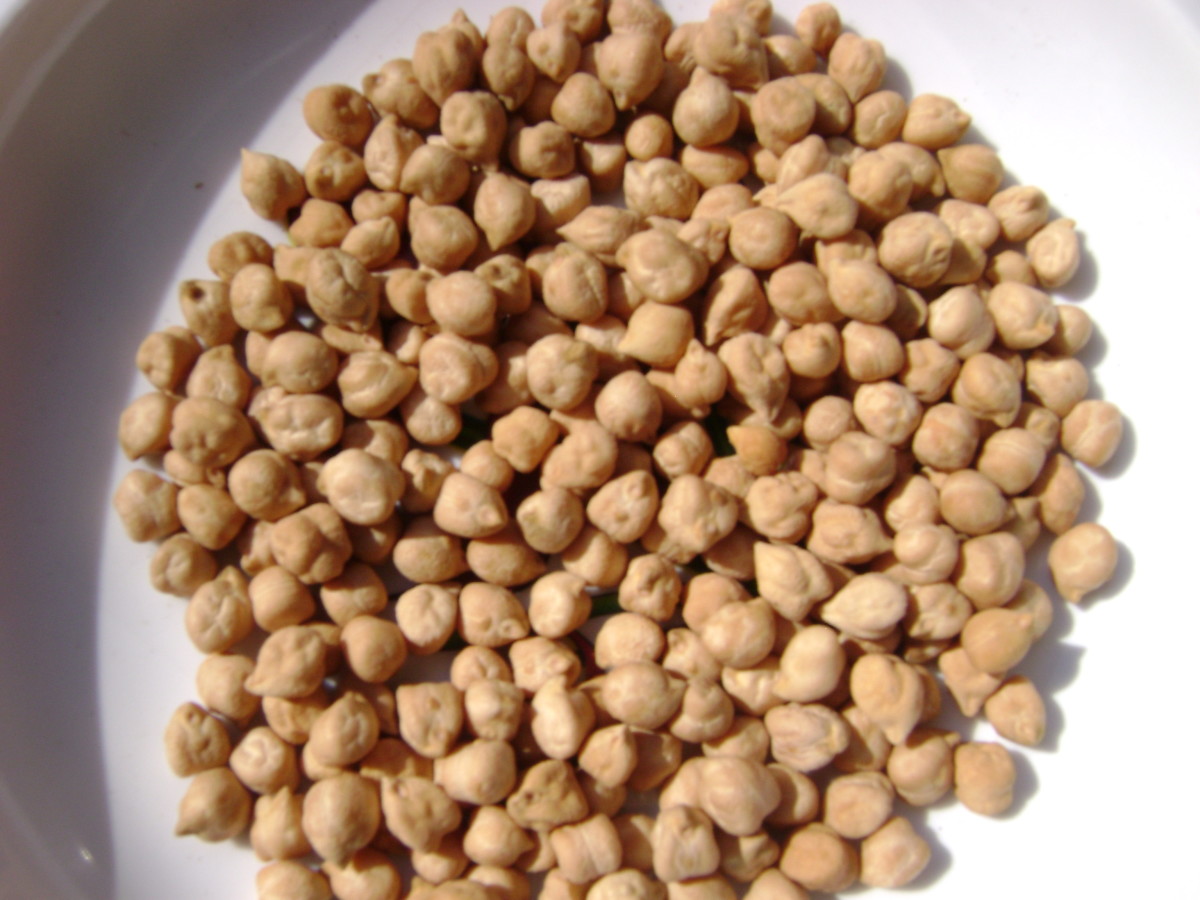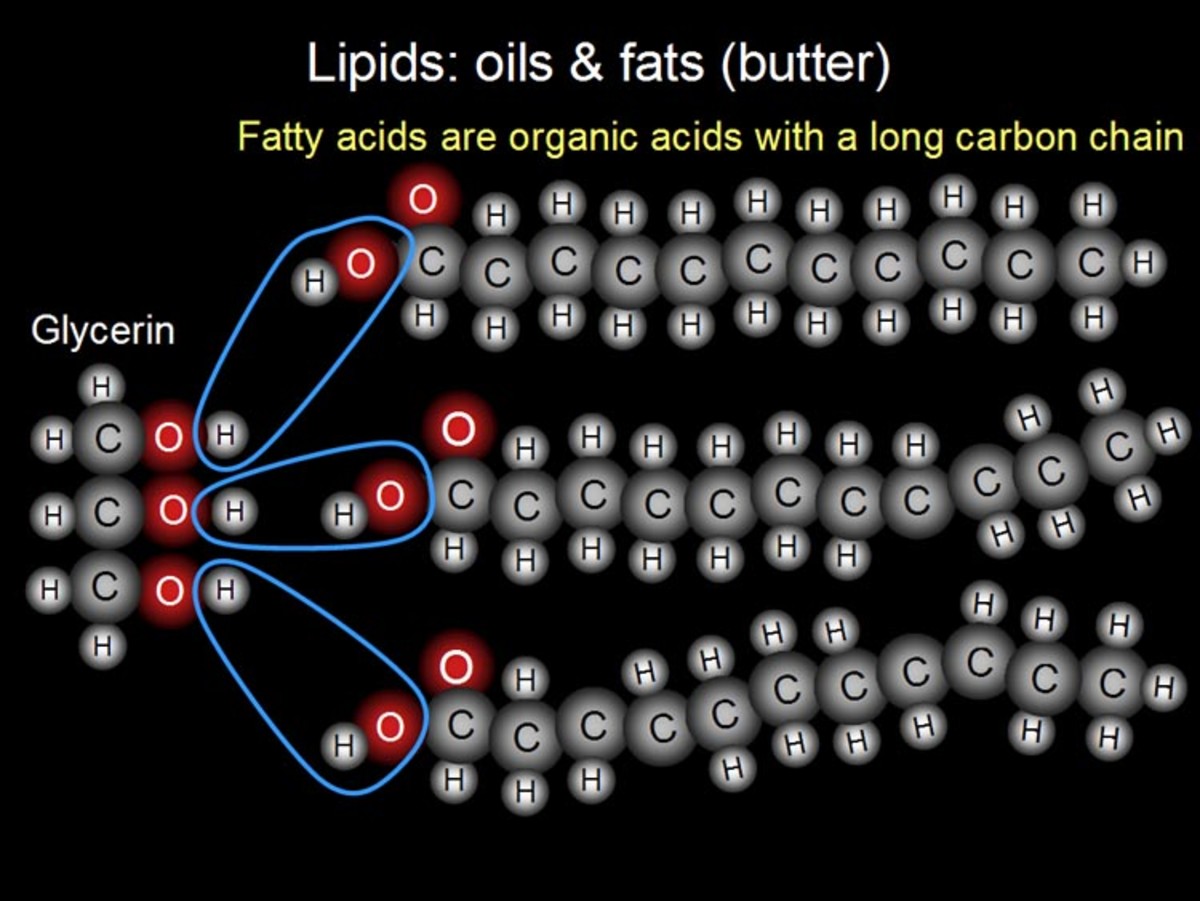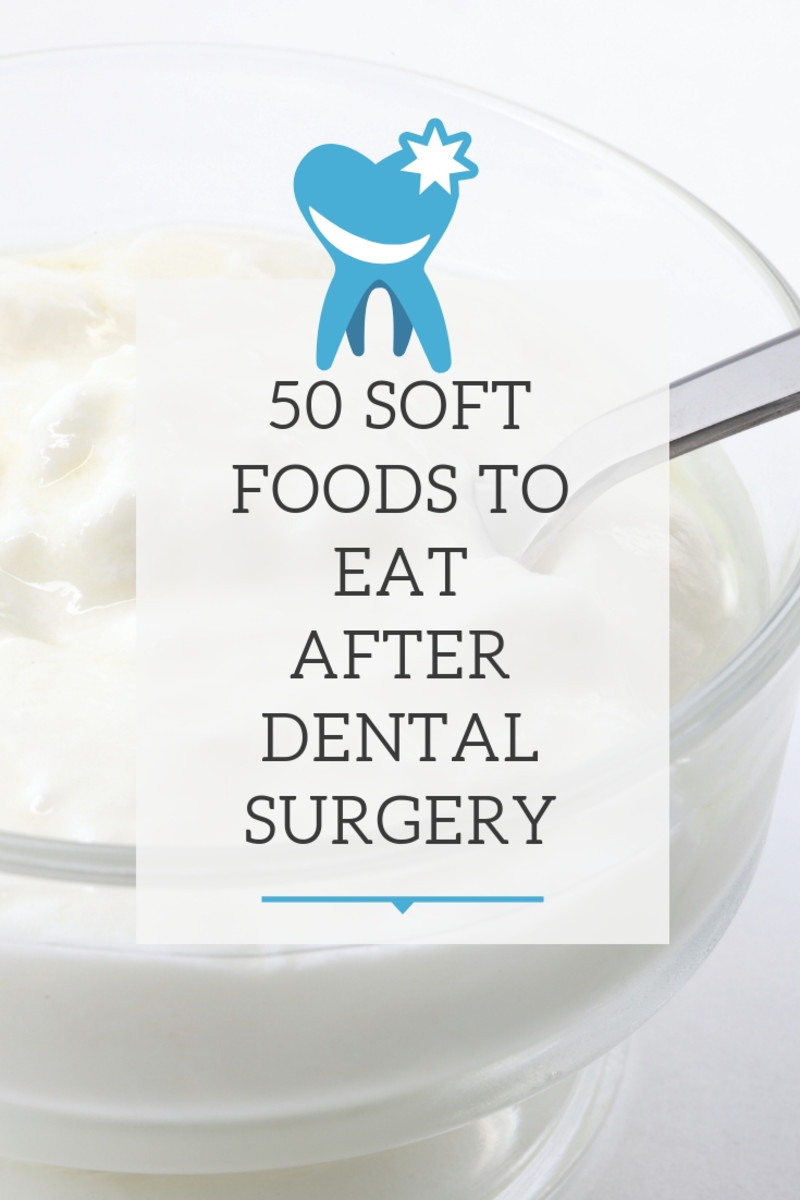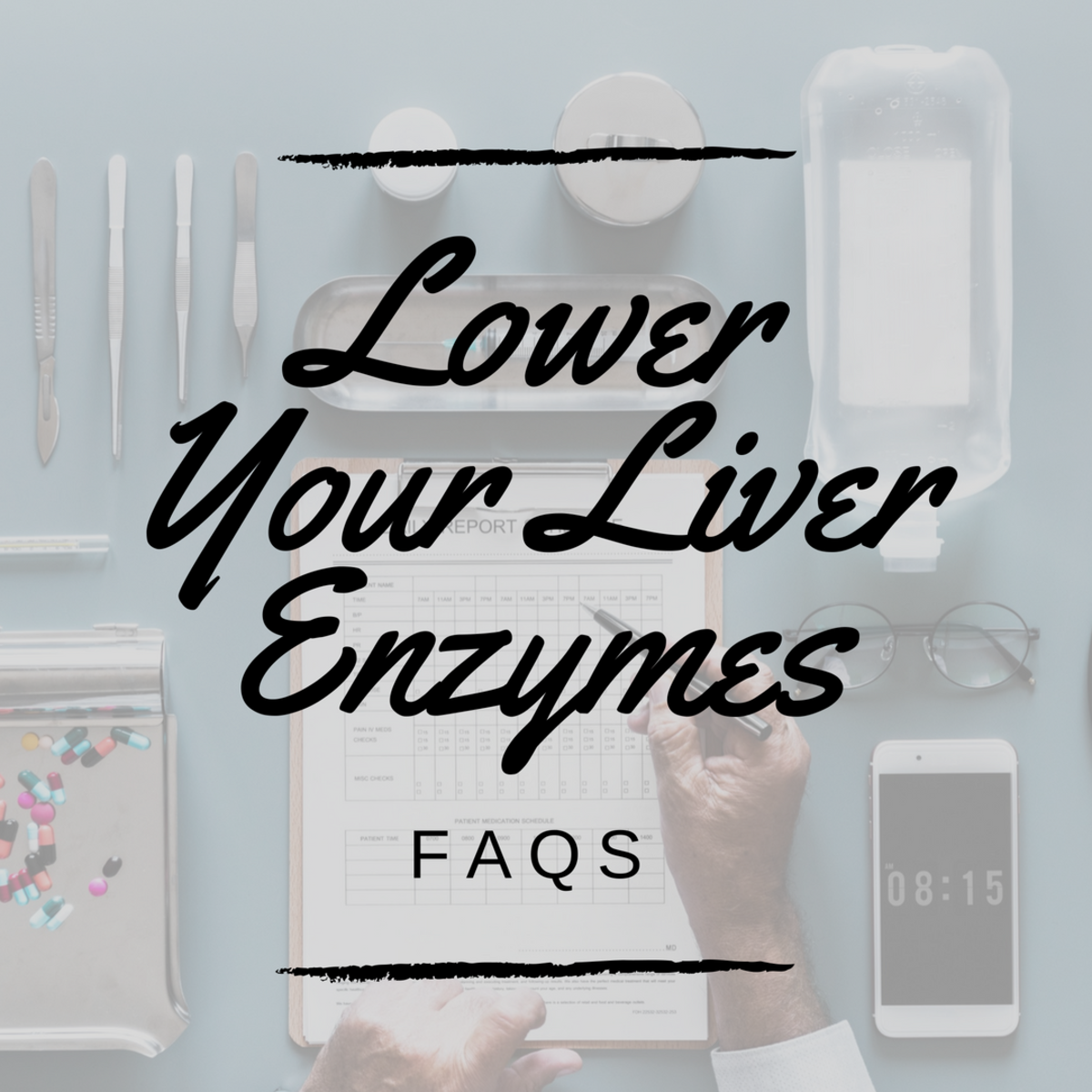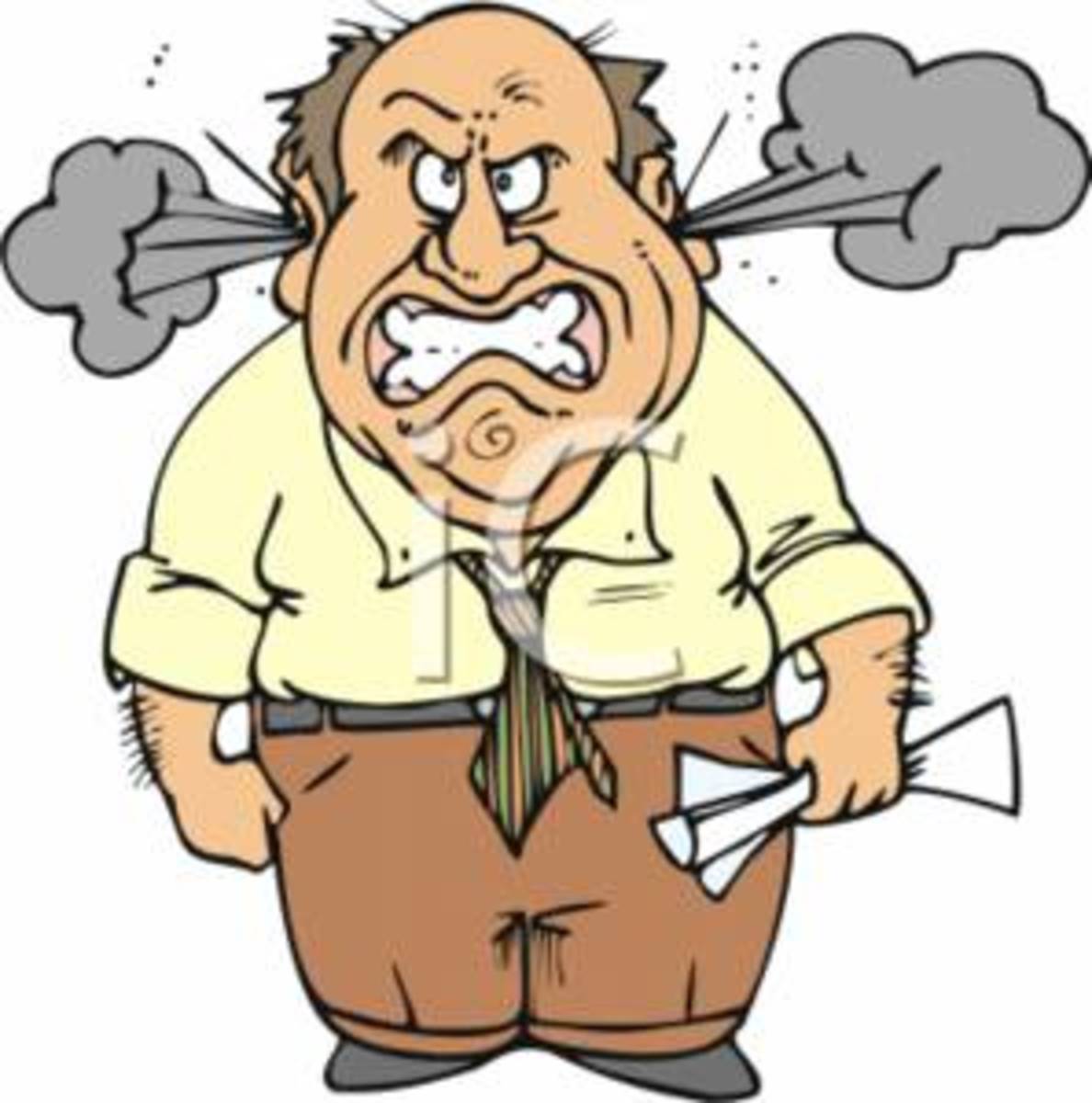What is Cholesterol and Must Know Facts About Cholesterol
Why Cholesterol Levels are Important
Health is the most important factor of your life. You can enjoy life and achieve your goals only if you are healthy. If you are sick and dull, nothing can be achieved. So, It is always good to be health conscious.
A little bit knowledge of everything that undergoes inside your body along with an awareness of some useful tips for maintaining a healthy body will be of much help to you in keeping yourself fit and healthy.
Maintenance of good cholesterol levels in your body is one such primary requirement which you should be aware of.
If the levels of cholesterol are out of desirable limits and are at the cross boundaries, you can face many problems of disorder in your blood circulation leading to heart ailments and heart attack.
I, personally, suffer from some disorders in my cholesterol levels as per my recent lipid profile which shows that I have exceeded the desirable limit and reached the borderline also. So, I am getting treatment for it and am also researching on this subject for keeping control over my cholesterol levels with some knowledge and self-help.
So, naturally, I thought of sharing this knowledge with you also. The result is this article.
Images of Cholesterol
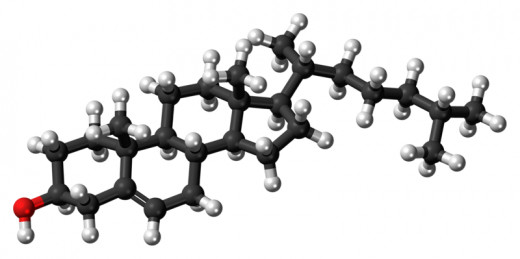
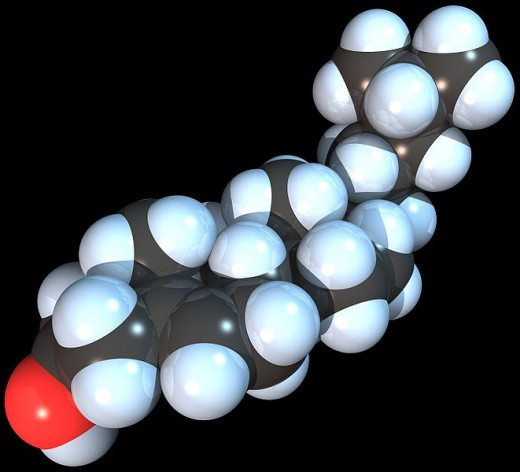
Cholesterol Facts, Causes, and Functions Explained
You may be wondering what this 'cholesterol' word refers to.
- Cholesterol is a sticky and waxy substance similar to fat that is found in blood cells of our body. Its appearance is like white crystalline powder.
- It is a kind of lipid molecule(oily and sticky) and organic molecule produced by our body.
- Cholesterol is required in our body to produce hormones and other substances that help digestion.
- It is also required for our cell membrane buildup and maintenance.
- This required quantity of cholesterol is automatically produced in our body.
- But, in addition to this quantum of our body's own produced cholesterol, we are consuming many foodstuffs containing cholesterol which may abnormally increase the cholesterol levels in our body.
- Besides the harmful food consumption, this bad cholesterol is also a result of the pollution in our atmosphere as per some studies undergoing. I am providing references to one US EPA website article that refers to this study.
- One more point contributing to bad cholesterol is the inhaling of tiniest polluted particulates of substances that get direct into our lungs while breathing in a polluted atmosphere. There is one link to an article by California Air Resources Board to support this view.
- These excessive levels of cholesterol will block the free flow of blood in our body by forming plaque and blood clots and thus create many problems including heart attack.
- Cholesterol cannot mix with blood.
- So it is to be carried through our bloodstream with the help of some carriers known as lipoproteins.
- These lipoproteins are made up of fat and proteins. Lipoprotein is a combination of lipid and protein. So lipoprotein is a structure whose outer surface is of proteins and inner structure is made up of fatty acids.
- Cholesterol travels through these lipoproteins from the heart to other parts of our body and back to the heart.
Two Major Types of Cholesterol Carriers (Lipoproteins)
There are two major types of Lipoproteins that carry cholesterol to and from cells in your body.
1) LDL (or bad) Cholesterol: This is Low-Density Lipoprotein cholesterol. LDL cholesterol is considered as bad cholesterol because it contributes to plaque formation which is a thick substance that gets deposited on the artery walls and thereby hinders the blood flow. It will result in the formation of blood clots.
2) HDL (or good) Cholesterol: This is High-Density Lipoprotein cholesterol. HDL cholesterol is considered as good cholesterol because it helps in removing the LDL cholesterol from your body. It acts as a cleaner by moving the bad cholesterol away from your arteries and other parts of the body to your liver. The liver will then remove it from the body.
Other Components of Cholesterol
Besides above two components of LDL Cholesterol and HDL Cholesterol, there are two more components that constitute a part of and make up the Total Cholesterol. They are VLDL lipoproteins and Triglycerides.
VLDL lipoproteins are Very Low-Density Lipoproteins which are dangerous as they cause more plaque formation when high in number. Because of their very low density, they easily get stick to the artery walls and cell membranes thereby forming plaque. So it is very important for you to know about the levels of these VLDL lipoproteins which are normally not shown in your general cholesterol reports.
Triglycerides are fatty substances which are also bad for your health when high in quantity. These triglycerides are used for storage of excess energy produced from our diet. But the excessive quantity of these triglycerides hinders the blood flow by plaque formation.
High Blood Cholesterol Affected Arteries & Plaque
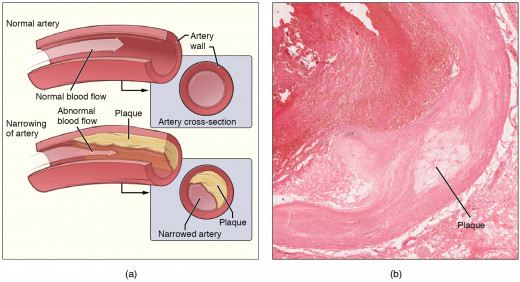
How to Know Your Total Cholesterol Composition in Tests
- Always try to ask for the total cholesterol composition reports from your diagnostics.
- Generally, when you ask for your cholesterol report, they will diagnose only the HDL and LDL lipoproteins and give you the report mentioning your total cholesterol, LDL cholesterol, HDL cholesterol and Triglycerides only.
- They do not mention your VLDL cholesterol levels in the report which is very important for you in knowing the accurate condition of your heart and arteries.
- So ask for it also in the beginning itself.
- Your total cholesterol consists of the totaled measurements of your LDL + HDL cholesterol levels + one-fifth of your total Triglycerides.
- Because of this reason, they try to skip VLDL lipoprotein measurements in the diagnosis.
- But, VLDLreport is a very important and most sensitive determinant of your heart condition. So always ask for VLDL report also.
Desirable Levels of Cholesterol
Cholesterol specification
| Desirable Ranges
| |
|---|---|---|
Total Cholesterol
| 70 to 199 mg/dl
| Border line 200- 239 mg/dl
|
HDL Cholesterol
| Above 40 mg/dl
| Risk factor if below 40 mg/dl
|
LDL Cholesterol
| Below 130 mg/dl
| Border line 130- 159 mg/dl
|
VLDL Cholesterol
| 6 to 38 mg/dl
| |
Triglycerides
| Below 150 mg/dl
| Border line 150- 199 mg/dl
|
The ranges are based on actual test reports conducted and also according to the ranges given in National Heart, Lung and Blood Institute website NIH of US Government.
How to Detect High Blood Cholesterol
Normally it is not known to you whether you are suffering from Cholesterol problems that may land you in danger because there are no visible signs and symptoms of cholesterol.
So, the only way that you can know about high blood cholesterol levels is by having your cholesterol test done.
If your LDL or VLDL levels are high then you are having problems.
- I used to have some symptoms like burning sensation on my back, some uneasy tightness feeling in my chest, and a kind of dizziness while I stand up after sitting on the floor for some time or stooping down. These can be associated with both high BP and cholesterol issue also.
It is better to get your cholesterol levels tested at intervals of each 5 years or even at one or two-year breaks beginning from your adulthood itself for being on a safer side and especially if you are above the 40s.
This report will tell you if you are suffering from high cholesterol levels. Especially VLDL cholesterol and Triglyceride levels are more important for you to protect yourself from heart problems and other complications.
Sample of Cholesterol Test Report
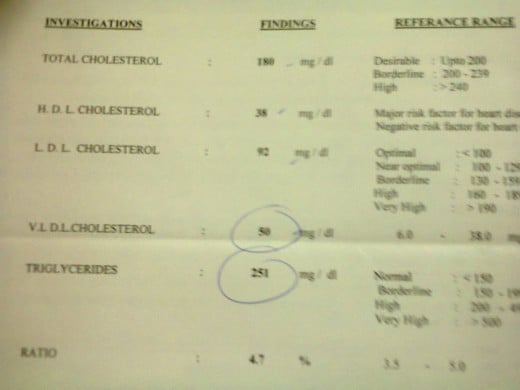
How to Deal With Cholesterol and Manage Desirable Levels
- The first thing to do is to get your lipid profile. For this, you need to provide your blood sample to the diagnostic lab without eating or drinking anything in the morning. He will take the sample and provide your lipid profile after 8 to 12 hours.
- Ask for a complete report revealing all the five levels of cholesterol as mentioned in the above table.
- If the levels are within desirable ranges, you need not worry. If they are above or below the desirable ranges, then you must consult your Doctor and take his advice and prescriptions. Especially, your LDL, VLDL, and Triglyceride levels should be within desirable range.
- Take medications and treatment as per Doctor's advice. My doctor prescribed a medicine to be consumed by me once daily for a long period.
- Even if your Doctor may not prescribe any control in eating habits, it is better to take your own precautions if you are on the borderline of desirable limits as per the lipid profile.
- Control your intake of food containing fats and cholesterol and consume more of fiber-rich foods like fruits, vegetables, legumes and coarse grains.
- Reduce salt intake also as it contains sodium.
- Have daily physical exercise and walking.
- Sometimes, cholesterol disorder can be hereditary. So consult your Doctor and take his help.
- High Blood Pressure, obesity and old age are also causes of cholesterol disorders. So persons with these symptoms should be in regular contact with doctors and should take all precautions.
- Tensions can create high blood pressure and thereby lead to cholesterol problems. So try to be cool and happy always.
- Cigarette smoking and alcohol also increase your cholesterol. So control these habits and have your regular check-ups.
- There is TLC lifestyle program (comprising of TLC Diet, Weight management, and Physical activity) recommended by National Heart, Lung & Blood Institute which can be viewed by you at the nhlbi.nih.gov website link given below under references.
- Some new testing devices are available at medical camps or clinics which offer instant reports by applying two drops of blood from your finger directly on the testing strip just like you do sugar tests. So you can have the levels checked at each visit to your doctor instantly and get correct medications. The below image shows this type of spontaneously tested report.
Cholesterol Risk Factors Explained Through Video
Recent Cholesterol Report Showing Improvement
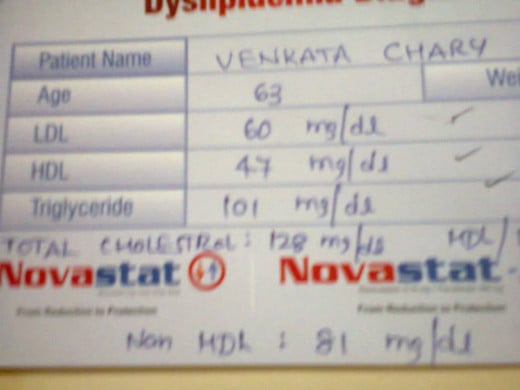
What is your opinion
Do you think it better to have regular checkups for cholesterol?
New Drugs Being Considered for Cholesterol Patients
U.S. Doctors are considering prescription of some new drugs of statin for using in the treatment of high blood cholesterol patients as per this below-linked news article published in Washington Post dated 09/06/2015 at this link:
http://www.washingtonpost.com/news/to-your-health/wp/2015/06/08/could-these-new-cholesterol-drugs-save-many-americans-from-heart-attacks/?wpisrc=nl_headlines&wpmm=1
Keep regular vigilance on your cholesterol levels and get timely medications along with precautions. Keep fit and healthy and enjoy your life.
Guidelines for Cholesterol Treatment
References
http://www.nhlbi.nih.gov/health/health-topics/topics/hbc
http://www.heart.org/HEARTORG/Conditions/Cholesterol/AboutCholesterol/Good-vs-Bad-Cholesterol_UCM_305561_Article.jsp
http://en.wikipedia.org/wiki/Cholesterol
https://www.epa.gov/sciencematters/study-shows-possible-link-between-air-pollution-and-higher-cholesterol-levels#:~:text=Study%20Shows%20Possible%20Link%20Between%20Air%20Pollution%20and%20Higher%20Cholesterol%20Levels,-Published%20February%2026&text=High%20cholesterol%2C%20especially%20the%20%E2%80%9Cbad,can%20lead%20to%20heart%20attacks.
https://ww2.arb.ca.gov/resources/inhalable-particulate-matter-and-health



